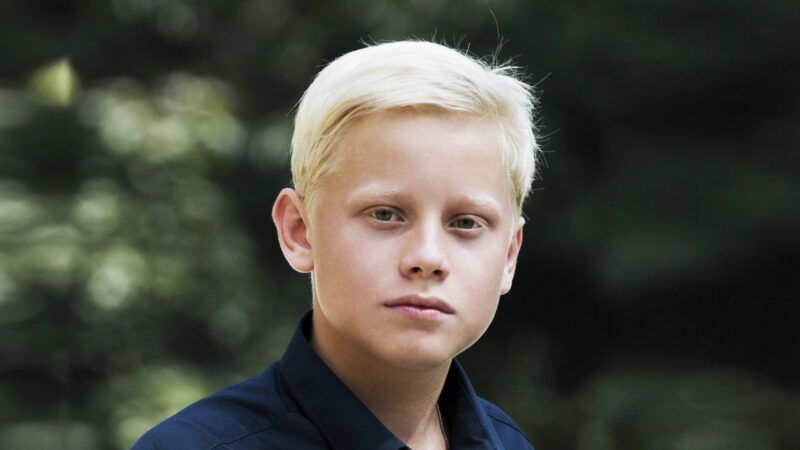Canceling an Artist Because He's Russian Is Nothing Short of Bigotry
And it will only drive people further into the arms of President Vladimir Putin.

The war in Ukraine is an atrocity. Sadly, so are some of the attempts to show solidarity with the Ukrainian people.
Russian restaurants in the U.S. have had windows smashed in and received bomb threats—when their owners have not only condemned the war but aren't even from Russia. Buildings with Russian cultural ties have been defaced. Much of the world is severing academic and professional ties with Russians, employing a nationality-based litmus test to punish people for a war they did not start and may not support.
The world of classical music took another embarrassing turn in that narrow-minded direction last week when a 20-year-old Russian pianist lost a string of engagements across Canada, with both the Vancouver Recital Society and the Orchestre symphonique de Montréal (OSM) saying it would be inappropriate to host a Russian artist at this time or in the near future. "Considering the serious impact on the civilian population of Ukraine caused by the Russian invasion," the OSM wrote in a statement, it "must announce the withdrawal of pianist Alexander Malofeev."
There are several immediate problems with that approach, but the most glaring: Malofeev condemned the war in Ukraine—not an easy task for someone who lives in the heart of a murderous authoritarian regime where dissidents are sometimes imprisoned, poisoned, or killed. It should be difficult to sell repackaged racial and ethnic discrimination as a brave stance against oppression, but, somehow, people are buying it.
That this is what's happening is not really up for debate. For its part, the Vancouver Recital Society originally nixed Malofeev under the guise that he hadn't spoken out forcefully enough against the war. Then he did. But while the organization said they "appreciate his words"—words that can come with quite the high cost—they stood by their decision. The society notes that it will stand in solidarity with Ukraine, apparently by ostracizing and alienating all Russians, making them global pariahs, and thus driving them further into the arms of President Vladimir Putin.
Over at the OSM, the famed conductor Michael Tilson Thomas, who is battling aggressive brain cancer, was supposed to conduct the young prodigy. He lost the opportunity. "It is regrettable that political situations have made it impossible," Thomas said in a statement. But did they?
If you ask JoAnn Falletta, music director of the Buffalo Philharmonic Orchestra, the answer would be a pretty simple no. The group declined to cancel performances with Malofeev earlier this month, despite some community pressure to do so. And the world kept on turning.
Malofeev's recent firings neatly coincided with another puzzling decision: The Cardiff Philharmonic Orchestra last week opted to remove composer Pyotr Tchaikovsky from its Tchaikovsky concert, describing the music as "inappropriate at this time." But the well-intentioned choice is misguided for a host of reasons, most notably the fact that the famed Russian composer, who died over a century ago, said he belonged in Ukraine and wrote some of his music around Ukrainian folk songs.
Such is the sort of bridge-building you'd assume we need right now: regardless of nationality, where you were born, or where you live, you can stand united in opposition to evil. Music transcends cultural and geographic boundaries. So, too, can opposition to war.
"I still believe Russian culture and music specifically should not be tarnished by the ongoing tragedy, though it is impossible to stay aside now. Honestly, the only thing I can do now is to pray and cry," Malofeev said in a Facebook post last week. "It would seem that there are obvious conclusions: no problem can be solved by war, people cannot be judged by their nationality."
Choosing to travel the latter road that Malofeev describes—one where someone is deemed complicit because of their birthplace and heritage—is bigotry masquerading as bravery. Courage is rebuking a dictatorial regime in spite of your nationality. Terminating someone because of their nationality? That's nothing short of cowardice.


Show Comments (36)